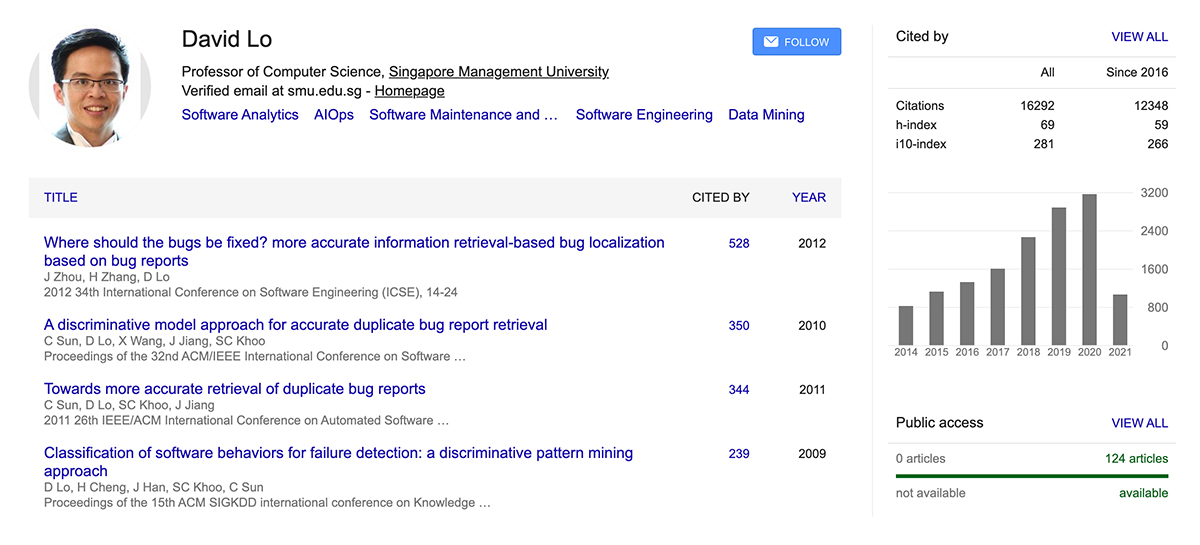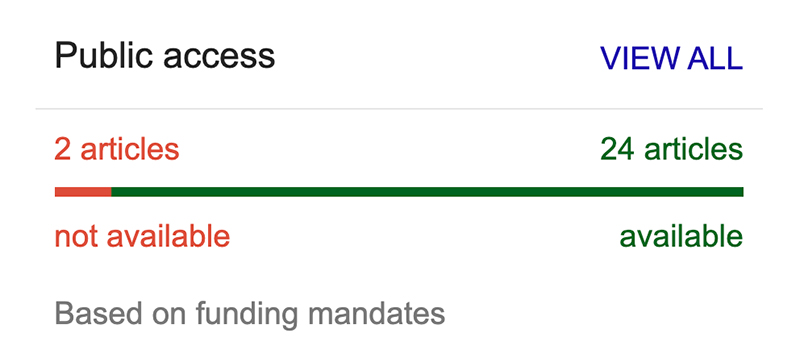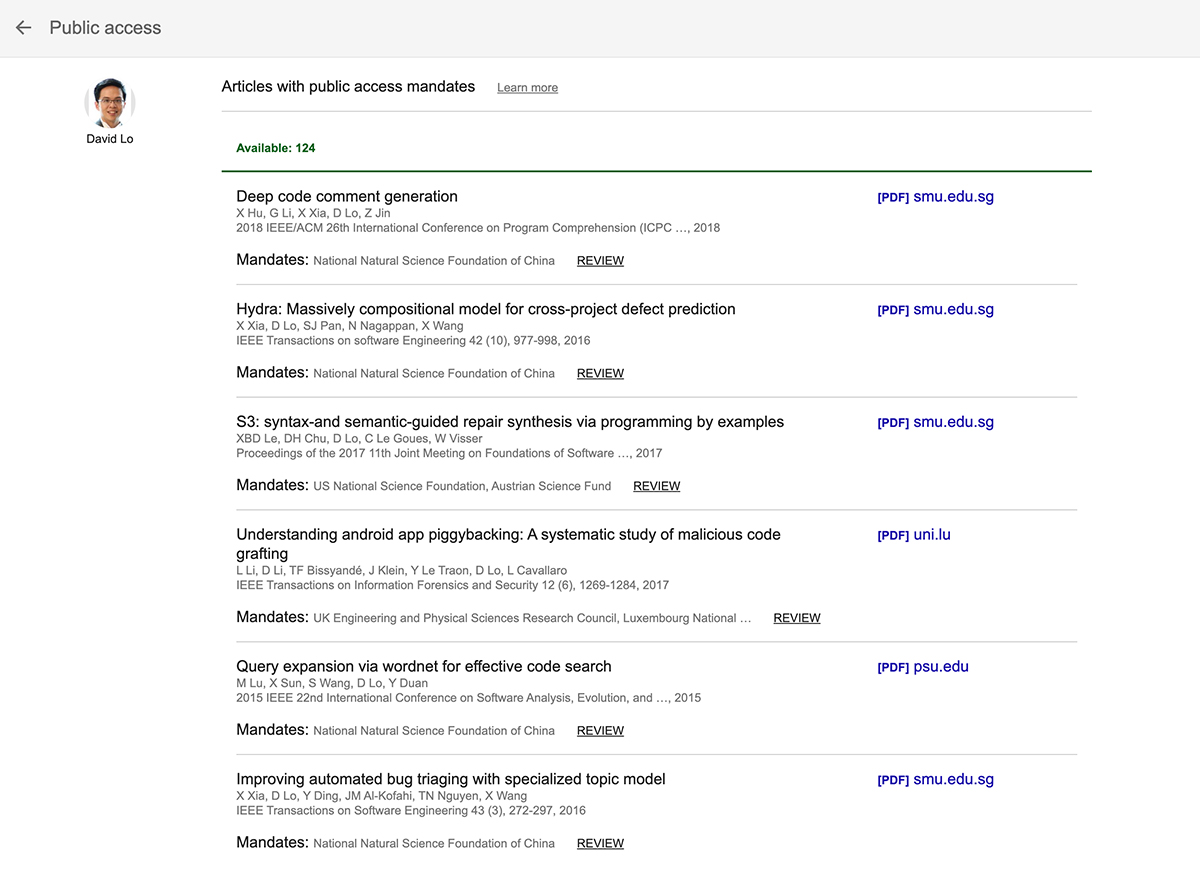
By Aaron Tay, Lead, Data Services
Google Scholar profiles are very popular with researchers including those of us in SMU. Using Google Scholar data as a source, they allow you, the researcher, to track the papers you have authored and the number of citations (based on Google Scholar data).

Recently, Google scholar launched a new initiative to track and manage public access mandates for articles. Google Scholar automatically tries to detect if a work is supported by funding agencies and if any freely available copy of the work is available.

If Google Scholar detects works that it thinks are not available, you will have the opportunity to confirm if such work is really:
- Under a funding mandate
- Not available
And make the necessary corrections To do so, click on “VIEW ALL” and “Review” in the following page.

As at time of writing, Google Scholar is tracking over 180 funding mandates including international ones like US National Institution of Health (NIH), National Natural Science Foundation of China as well as the following Singapore research funders:
- A*Star, Singapore
- National Research Foundation, Singapore
- National Medical Research Council, Singapore
Issues with detection of “public access” papers.
Like any automated service, particularly a new service, the detection of “public access” papers will not be perfect and chances are there may be some errors in your profile initially. Here are some known issues.
Firstly, detection of papers under funder mandate is found based on matching - “2,000 wording variations in an article’s text — ‘funded by’, ‘supported by’ and so on” and this might result in false positives.
Secondly, like Google Scholar, the automated service might not be able to detect a free copy that the researcher may have made open access. If you encounter such situation, do contact SMU Libraries for assistance to get your paper indexed. Do not upload a copy into Google Drive as suggested by Google as such a copy not only lacks discoverability beyond indexing by Google Scholar but also is unlikely to be persistent.
Thirdly, even if Google Scholar correctly detect a paper that you have co-authored is supported by a funder mandate and is able to find a freely available copy, you might still not be fulfilling the mandate terms. This is because funder mandates often specify the type of open access the paper has to be made available under (e.g. open licenses), while Google Scholar only checks if the paper is freely available and does not consider licenses. '
Again, do approach our library [at] smu.edu.sg (SMU Librarians) if you have any queries.
Learn more
- Track and manage your public access mandates – Google Scholar blog
- FAQ on Public Access section on Google Scholar Profile - Google Scholar help
- Do you obey public-access mandates? Google Scholar is watching - Nature News